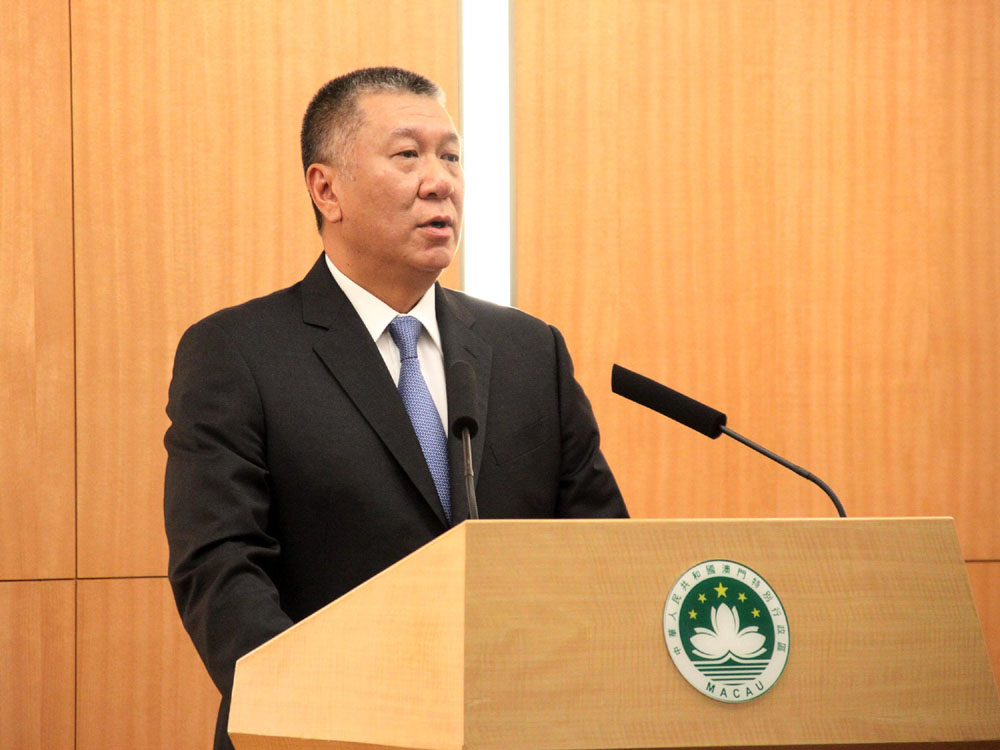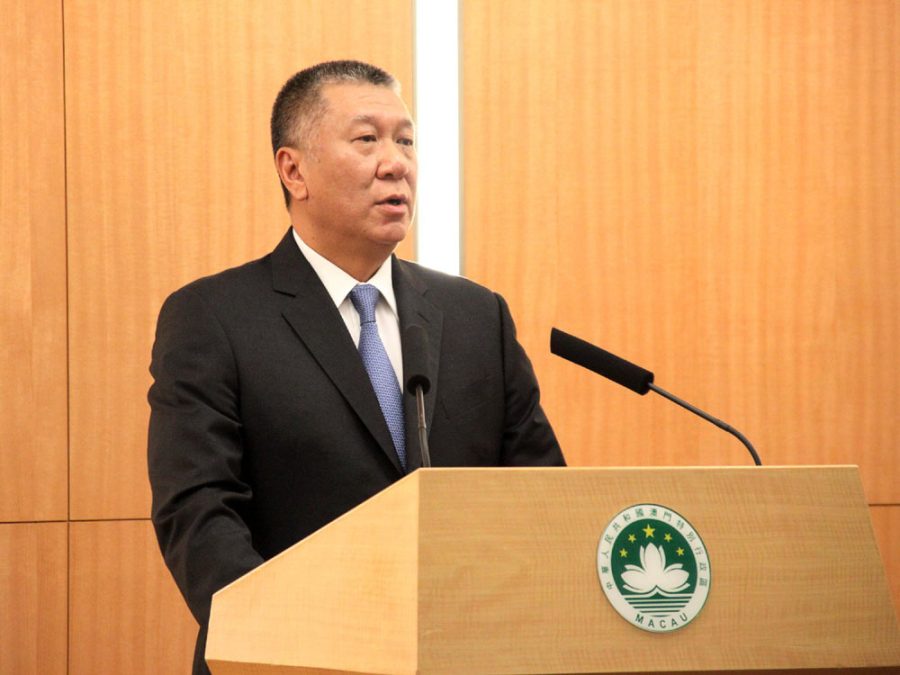Macau, China, 23 Oct – The Macau Chief Executive Edmund Ho Hau Wah announced Wednesday the start of a 40-day public consultation process on the proposed legislation on the draft of the national security law, which be reviewed and voted by the Legislative Assembly.
The draft of the national security law, which contains 15 articles; aims to prohibit “any act of treason, secession, sedition, subversion against the Central People’s Government, or theft of state secrets, to prohibit foreign political organizations or bodies from conducting political activities in the Region, and to prohibit political organisations or bodies of the Region from establishing ties with foreign political organisations or bodies”.
Edmundo Ho Wau Wah said that up until December 1999, when Portuguese administration of Macau reverted to China, Portugal’s 1886 Penal Code was applied in Macau for the purposes of national security. However, as the Special Administrative Region of Macau (SAR) was established, Portuguese law no longer applied, leaving a legal void in safeguarding national security.
Macau’s Chief Executive said that the People’s Republic of China “opted not to extend Chinese law to Macau in regards to this matter” and via Macau’s Basic Law, delegated to the SAR the responsibility of drawing up its own law”.
“It is, naturally, a constitutional obligation that the Special Administrative Region cannot give up,” he said.
Edmund Ho said the government “created a draft of the proposed legislation based on studies and preparatory work developed over the last few years (…) complying with Macau’s Basic Law, Macau’s legal system, and taking the local reality into account”.
“During the draft process, the government was always concerned with the scrupulous respect and protection of fundamental rights and freedoms as stated in the Basic Law of Macau, namely freedom of speech, of information and of press,” the Chief Executive said.
Edmund Ho Hau Wah said that “the draft of the proposed legislation, on the one hand, is prescribed by Article 23 of the Basic Law of Macau, and on the other hand, safeguards national security and basic rights of residents”.
The Chief Executive also said he hoped the law could be approved by the Legislative Assembly before the end of his term on 19 December, 2009.
The sentences to be set for crimes against the security of the State will be based on the sanction system set out in the Macau Penal Code, according to which the prison sentence applied to each crime has the maximum length of 25 years, and the sum of sentences applied to the various crimes may not exceed a total of 30 years.
The proposed text now sets out between 15 and 25 years for crimes of treason, such as taking up arms against China, but this only applies to Chinese citizens resident in Macau.
Crimes of secession and acts of subversion against the Central People’s Republic are punishable with sentences of 15 to 25 years, whilst incitement of such acts may be punishable with 1 to 8 years of prison.
Dealing in state secrets, including spying or buying secrets, is punishable by prison sentences between two and eight years, whilst espionage has a sentence range of three to ten years.
The proposed law also bans foreign political organisations and associations from committing acts against State security and Macau political association or organisation from associating with them for the practice of acts against State security, with the application of fines and accessory sentences, “penal responsibility” of those responsible for the crime, “notwithstanding.”
Although foreign political organisations are banned from being active in Macau, the regulation of this provision will be implemented via diplomas outside of the current proposal, which for now will make it possible for foreign organisations, such as the local section of Portugal’s Social Democratic Party to continue their activities in the territory.
As well as prison sentences, the proposed law also includes accessory sentences such as loss of political rights, bans from carrying out public roles and expulsion from the territory for non-permanent residents.
The new law has jurisdiction over crimes committed in Macau or, in the case of holders of resident identity cards, also acts that occur outside the territory’s borders.
(MacauNews)






